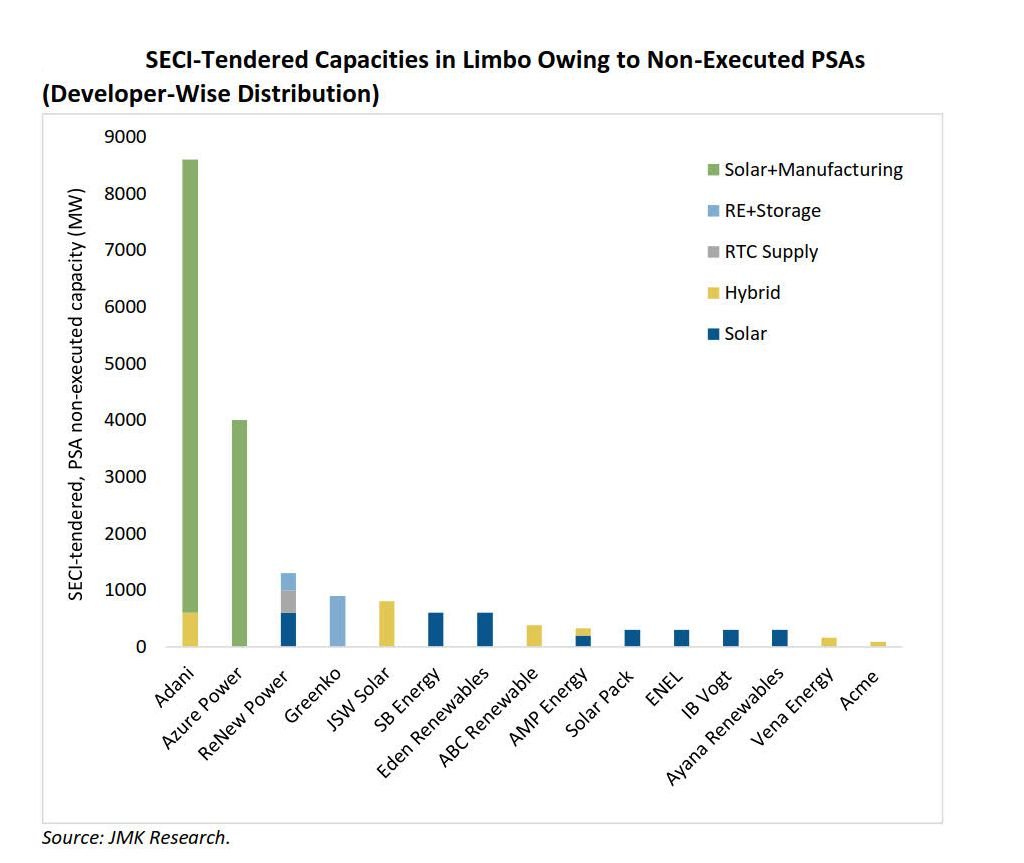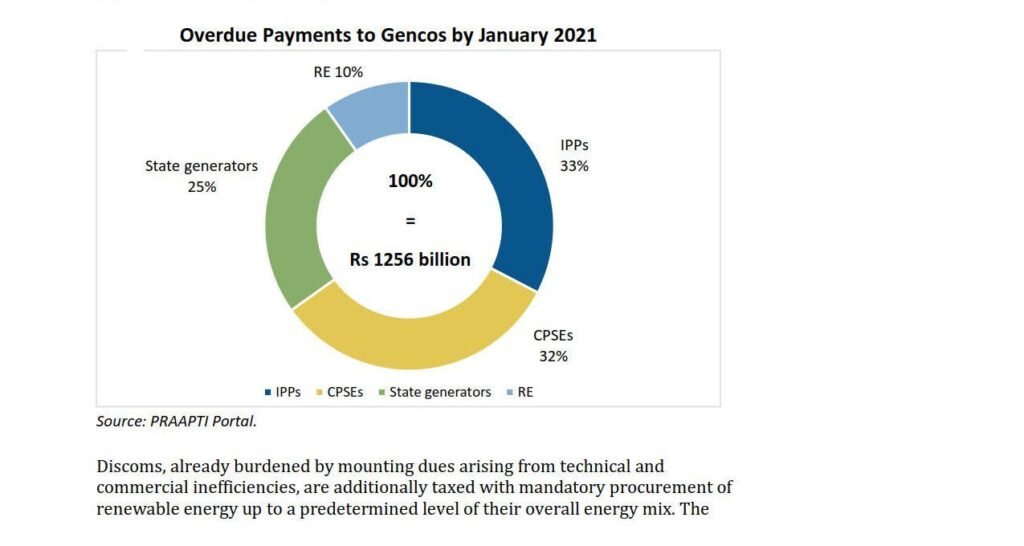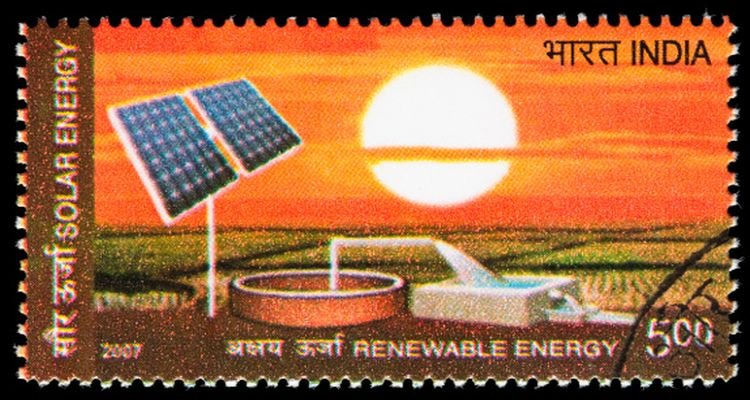Delays in signing of power sale agreements (PSAs) are a bottleneck in the growth of renewable energy capacity in India, jeopardizing the government’s renewable energy target of 175 gigawatts (GW) by 2022, dampening investor confidence and threatening the viability of projects, finds a new briefing note from the Institute for Energy Economics and Financial Analysis (IEEFA) and JMK Research.

PSAs for nearly 19GW of renewable energy capacity tendered by Solar Energy Corporation of India (SECI) are yet to be signed by state-owned distribution companies (discoms). Manufacturing-linked solar projects account for the majority (63%) of this capacity.
This situation is having an adverse impact on the morale of project developers and investors and is slowing overall progress on renewable energy installation.
The missing link of PSAs affects the entire value chain. For example, without the assurance of the offtake of power for auctioned renewable energy projects, it becomes virtually impossible for developers to secure debt financing.

Developers with SECI-tendered projects in their pipelines awaiting PSAs include Adani, Azure Power, ReNew Power and Greenko, which together form 78% of the total capacity in limbo.
The note points to falling solar tariffs, driven by declining solar module prices, as a key reason for the discoms’ reluctance to sign PSAs – and in a few cases attempts to renegotiate or renege on wind and solar power purchase contracts.

Furthermore, with tougher penalties and enforcement of Renewable Purchase Obligations (RPO) under the draft Electricity Act (Amendment) Bill 2020, discoms would have to procure power from renewable sources.
The Ministry of Power’s Bill also proposes setting up a body to enforce contracts between generating, distribution or transmission companies.
India must look for ways to speed up renewable energy installation to meet its national target of 175GW.
The above article is based on a new briefing note from IEEFA and JMK Research






